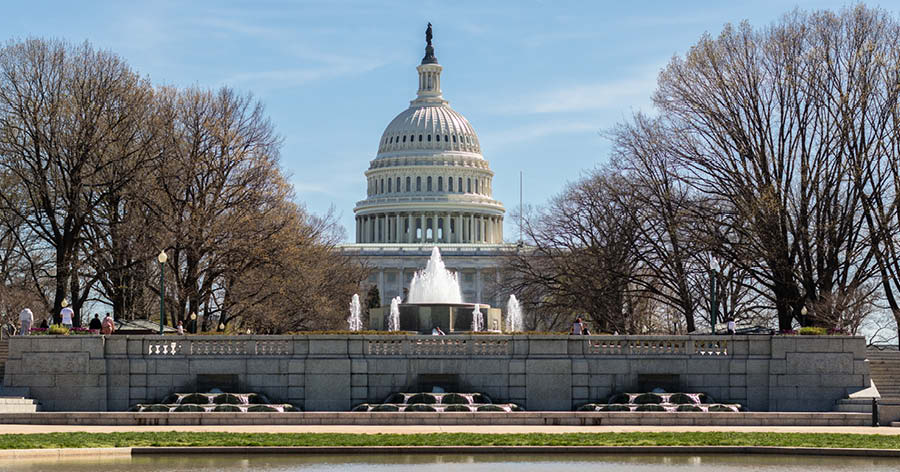Ignore the big shiny object of the President-elect Biden pandemic proposal – what matters is reality and where he puts his shoulder to the wheel. When he is sworn in on January 20, 2021, Joseph Robinette Biden Jr. will be the 46th President of the United States. At Taxpayers for Common Sense we have some serious suggestions for sensible, fiscally-sound federal policies. And we’re always looking for ways to make suggestions that everyone, even those sad people who haven’t discovered the joys of contemplating new fiscal policies, will find memorable. Dare we say, “catchy”?
Today we reveal a set of “Four Point Six” memoranda for the incoming Biden Administration. This is our recommendation for things that the 46th President could do to promote policies returning the United States Government to greater fiscal balance, increased transparency and accountability, and to reduce the deficit.
Why 4.6? Honestly, would you read a list of 46 recommendations for a bunch of federal agencies? We would, but we’re nerdy that way. Know your audience. In a 140-character, TikTok, Instagram world nobody’s reading that many words. Enter “Four Point Six”. In each case we consider the “Point Six” recommendation to be a layup. While every item on our list is achievable, the last recommendation for each agency is something they can commit to on day one, before they finish their morning coffee. A simple action, or inaction, the Biden Administration can do to get the ball rolling.
We hope these ideas will gain traction on Capitol Hill as well. Call us cynics, but there is no doubt that certain national Republicans will recover from their deficit-fueled fever and suddenly rediscover their fiscal conservative roots now that the Presidency, the House, and the Senate are in the hands of the Democrats. And we’ll welcome them back to the fiscal responsibility fold, but also remind them that their push for deficit-neutral tax reform turned into a nearly $2 trillion deficit-financed tax cut. And that they were party to hundreds of billions of dollars added above agreed upon budget caps over the past four years. That the infamous “Zero to Hero” additions to the Pentagon budget were committed under both Republican and Democratic leadership of the Appropriations Committees. Oh, and one of the costliest farm welfare programs in U.S. history came not from an out-of-control Congress, but President Trump’s unilateral steps to stop the economic (and political) damage from his administration’s trade war. And they looked the other way.
There is no doubt that the worldwide pandemic was an unprecedented event. The spiraling health crisis and the blow to our national economy required immediate, and expensive action. Many potentially costly needs continue. But TCS believes lawmakers must follow certain principles to ensure emergency spending serves the public good. Do what’s necessary, not advantageous. Deficits still matter in the long run. Prioritize response on mechanisms with the greatest positive effects. Emergency legislation should not make permanent changes or create long-term liabilities. And transparency and accountability are key.
There is also no doubt that President Trump’s policies such as the aforementioned massive tax cut and budget-busting spending increases blew a hole in the budget and ballooned the deficit in unsustainable ways. And that is not even mentioning the ill-conceived and badly implemented trade war that resulted in hush money payments to injured (but favored) businesses. We’ll be dealing with the fiscal fallout of that for years, maybe decades, to come. We hope the Biden Administration will recognize the challenging playing field they arrive upon. That tax cuts – well the provisions that benefit individuals, not corporations (for the most part) – expire in 2025. It may be after the term, but better to get a deal in place before that tackles both the profligacies on the corporate side as well as required changes for individuals. And look hard at defense spending which has grown dramatically despite budget caps. There is necessary pandemic spending but there will be a time to wind that down. We know there have been proposals from the inside. And let’s not forget the very real challenges of dealing with combating, mitigating, and adapting to climate change. But none of that exempts the president from figuring out a fiscal prudent path forward. We don’t believe abdicating fiscal responsibility in the face of these very real challenges is a responsible option.
::stepping off the soap box::
Without further ado, read on to learn more about our Four Point Six ideas for the Biden Administration.














Get Social